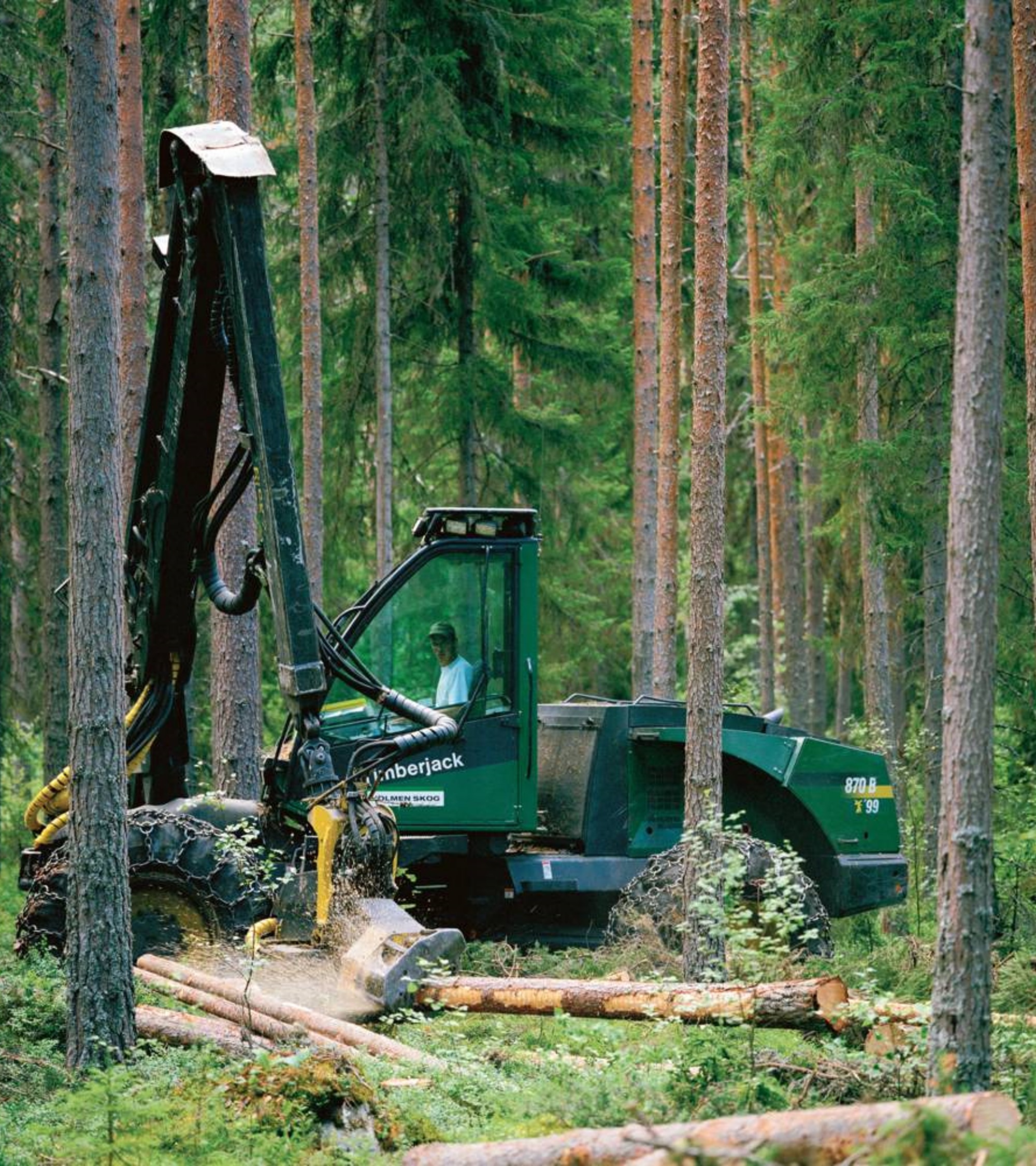
The forest industry in Sweden
The forest industry in Sweden includes companies in the pulp and paper industry and the woodworking sector.
The forest industry plays a key role in the Swedish economy. It accounts for between 10 and 12 per cent of Sweden’s total value of employment, exports, turnover and value added. It is strongly export oriented and since its raw material is sourced mostly domestically, and the import of forest industry products is relatively small, Sweden’s forest sector makes a significant contribution to the country’s trade balance. The sector generated SEK 164 billion in export revenue in 2021. Almost 90 per cent of pulp and paper production is exported, and the equivalent for sawn wood products is slightly more than 75 per cent.
Forest industry products reduce climate impact
The Swedish forest sector produces wood products, paper, packaging material and hygiene paper. All these products replace fossil-based materials and thus contribute to reducing climate impact. Once bio-based products have been reused and their materials recycled, they can be burned in waste-fired cogeneration plants to generate bioenergy. The forest industry is also the largest producer and user of conventional biofuels in Sweden.
The forest industry is energy-intese
The forest sector uses large amounts of energy. For several forest industry companies, energy consumption costs are at similar levels to raw material and personnel costs. The production of mechanical pulp and paper is especially energy-intense. Access to energy at competitive prices is vital for the growth of the forestry industry.
The sector is Sweden’s most electricity-intensive industry, consuming approximately 19 TWh a year, corresponding to 15 per cent of Sweden’s total electricity use. The sector has taken steps to make its electricity use more efficient for many years. For example, large sections of the forest industry participate in the voluntary Programme for Energy Efficiency (PFE) and has reduced annual electricity consumption by almost 1 TWh.
The industry’s use of fossil fuels has decreased since the oil crisis of the 1970s, and today fossil fuels account for approximately four per cent of its fuel needs. The sector is also Sweden’s largest bioenergy producer. It supplies fuel to cogeneration plants and heat to district heating networks. It is also 40 per cent self-sufficient in electricity, with 6.6 TWh of electricity generated from its own biofuels.
Contact person
